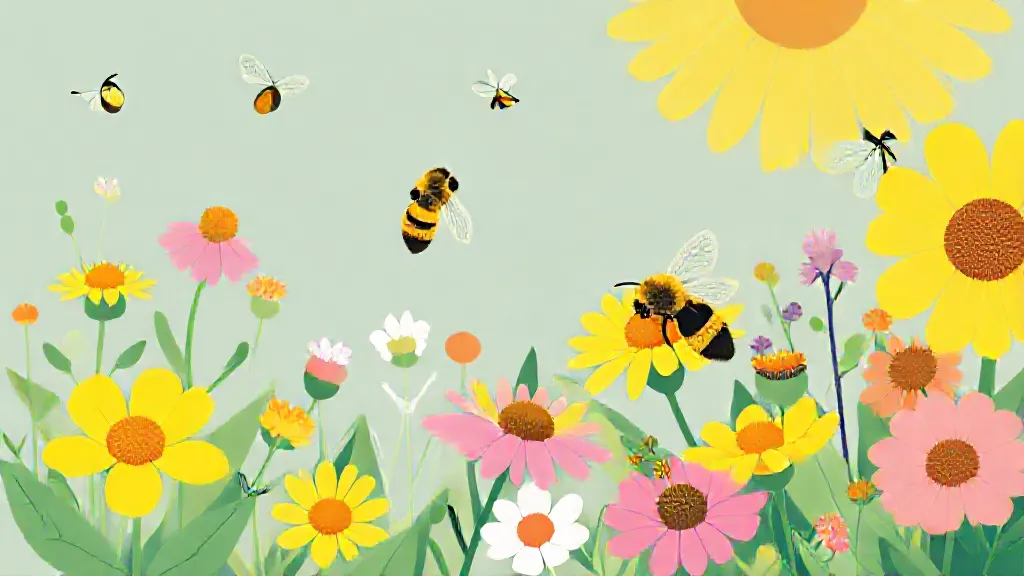Honeybees, scientifically known as Apis mellifera, play an indispensable role in our ecosystems, primarily through their function as pollinators. Pollination is a critical ecological process where pollen is transferred from the male anthers of a flower to the female stigma, facilitating the reproduction of flowering plants. This process is vital not only for the production of fruits and seeds but also for maintaining the overall health of ecosystems.
Approximately 75% of the world's flowering plants and about 35% of global food crops depend on animal pollinators, with honeybees being the most significant contributors among them.
The Ecological Impact of Honeybee Pollination
The ecological impact of honeybees extends far beyond the agricultural realm. They are responsible for pollinating a vast array of wild plants, which in turn support diverse animal species and maintain habitat integrity.
Healthy populations of flowering plants foster biodiversity, providing food and shelter for various organisms, including birds, insects, and mammals. The decline of honeybee populations can lead to a cascade of ecological consequences, resulting in reduced plant diversity and the subsequent decline of species that rely on those plants for survival.
Honeybees and Food Security
Honeybees are crucial for global food security.
They contribute to the pollination of many crops that are essential for human consumption, including fruits, vegetables, and nuts. According to the Food and Agriculture Organization (FAO), around 1.4 billion farmers worldwide rely on crop pollination, with honeybees being a key player in this process.
The economic value of honeybee pollination is estimated to be in the billions of dollars annually, highlighting their importance not only ecologically but also economically.
The Decline of Honeybee Populations
Despite their importance, honeybee populations are facing significant threats. Factors such as habitat loss, pesticide exposure, climate change, and diseases have contributed to the alarming decline in bee populations globally.
The phenomenon known as Colony Collapse Disorder (CCD) has raised concerns among scientists and environmentalists. Addressing these threats is imperative for the sustainability of ecosystems and agricultural systems that rely on honeybees for pollination.
Conservation Efforts for Honeybees
Conservation efforts aimed at protecting honeybee populations are multifaceted.
Initiatives include creating pollinator-friendly habitats, reducing pesticide usage, and promoting organic farming practices. Community awareness and education play a vital role in these efforts, as individuals can make informed choices that support bee health. Additionally, urban gardening and planting native flowers can enhance local bee populations and contribute to their preservation.
The Role of Beekeeping in Ecosystem Health
Beekeeping, or apiculture, is not only a means of producing honey but also an essential practice for maintaining bee populations. Responsible beekeeping can help bolster local ecosystems by providing managed hives that contribute to pollination services. Beekeepers often engage in practices that promote the health and resilience of bee colonies, such as breeding for disease resistance and providing supplemental feeding during times of scarcity.
Honeybees in Cultural and Historical Context
Honeybees have held cultural significance throughout history, symbolizing diligence, community, and prosperity. Ancient civilizations revered bees, and their products were often associated with divine qualities. The historical relationship between humans and honeybees underscores the need to protect these vital insects, as their decline could disrupt not only ecological balance but also cultural heritage.
Future Perspectives on Honeybee Conservation
Looking ahead, the future of honeybees and their role in ecosystems depends on concerted global efforts to mitigate threats and enhance their populations. Research into bee health, behavior, and ecology is essential for developing effective conservation strategies. By fostering a deeper understanding of the interconnectedness of honeybees and ecosystems, we can work towards a sustainable future that values and protects these essential pollinators.
